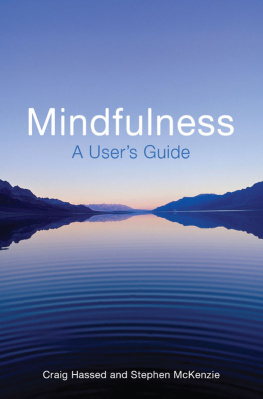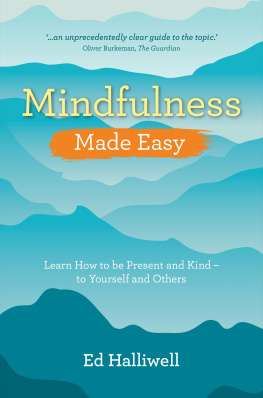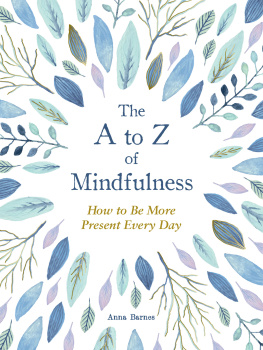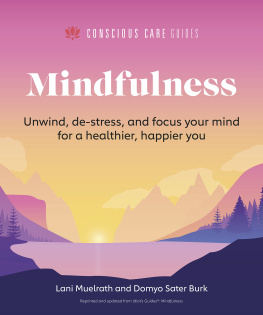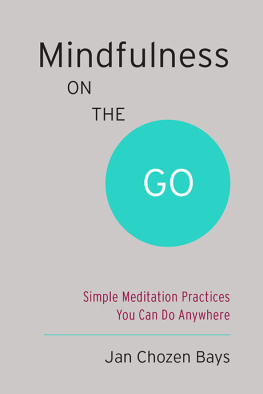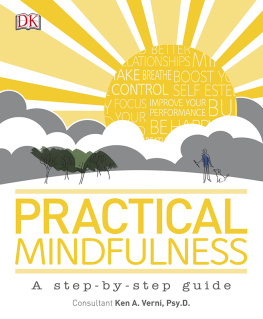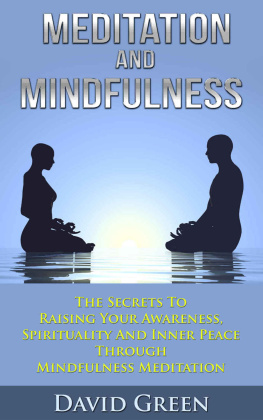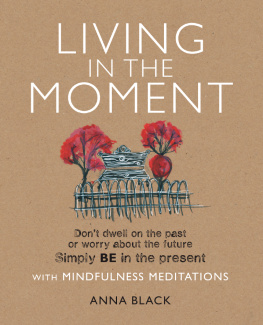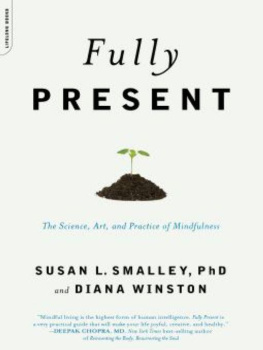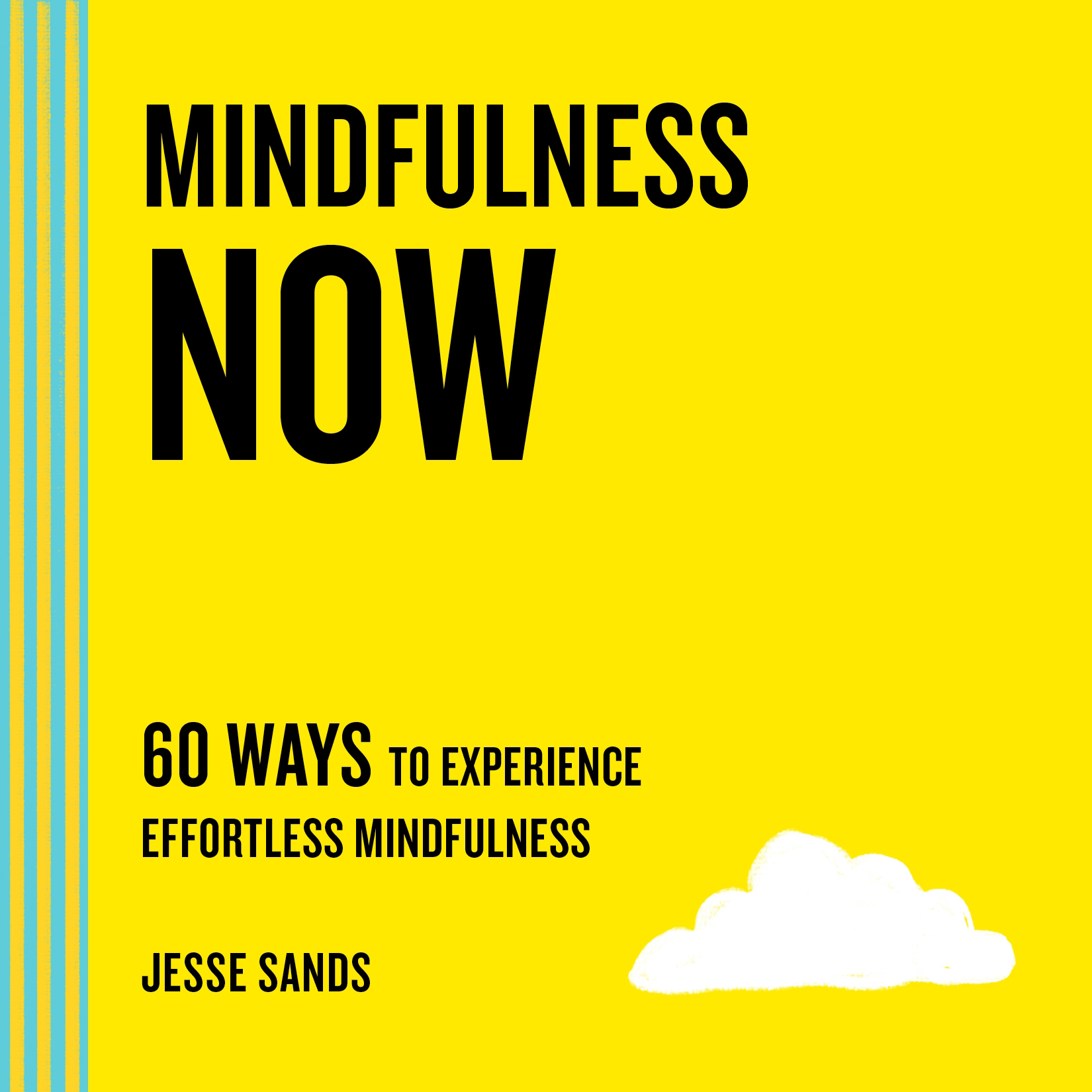The author and publisher have provided this ebook to you for your personal use only. You may not make this ebook publicly available in any way. Copyright infringement is against the law. If you believe the copy of this ebook you are reading infringes on the authors copyright, please notify the publisher at:
us.macmillanusa.com/piracy.
Mindfulness means paying attention in a particular way, on purpose, in the present moment, non-judgmentally.
I wish I had been taught about mindfulness when I was a kid. It would have saved me a lot of time, trouble, and a whole bunch of drama.
I discovered mindfulness at a time in my life when everything seemed to be going wrong. My job sucked. I was single, but not happily so. I had a ton of credit card debt. I was eating and drinking too much. And on and on. I needed a change.
A friend of mine casually said over dinner one night, Hey, maybe you can come with me to meditation classits really been helpful for me. Meditation class? There were few things I wanted to do less than go to a class to do what just sit there? My life was a mess; I needed to take action, not just sit and pretend nothing was wrong.
She persisted, and so to appease her, I said yes. I thought I would go once, say, Its not for me, but hey, thanks, and then never do it again. I went with her, wearing sweats and bringing a pillow (Im not sure why I brought the pillow), and together my friend and I walked into the meditation classroom.
It was at a Buddhist center, but my friend explained that this class wasnt religious in any way, and there was no proselytizing or pushing of ideas; it was just a basic meditation class. I didnt know what to expect, but I wasnt expecting the people to look so normal. The twenty or so people were diverse, and all dressed in their sweats, too (though no one else brought a pillow). The first thing I noticed was how calm everyone was.
We sat down wherever we wanted to sit (I sat near my friend, of course), and the instructor told us to just begin breathing, counting each breath in this way: breathe in as 1, breathe out as 2, breathe in as 1, breathe out as 2, over and over.
To be honest, my mind was racing and filled with a lot of judgment. How could breathing and counting all the way up to the number 2 be beneficial? Still, I was there, so I decided try it, because why not.
And I did it. And something inside me shifted just a little, tiny bit. It wasnt like a magic Xanax pill experience, but more like something inside me released when I stopped doing. I realized from that first class how much energy I was burning all the time, how caught up in everything I always seemed to be.
Now I just stopped, and for a few brief moments, I let it all go.
Let me add that I was terrible at that first class. I dont know how much actual meditating I didprobably very little.
My mindwhich the instructor later told me was the part of my brain they call the monkey mind, the part that is constantly chattering insidedidnt want to slow down and focus.
I had a difficult time concentrating on breathing in and out, 1 and 2. I had an itch, then another; I had to use the bathroom; I felt a leg cramp; I thought of things to add to my to do list. But, for a few brief moments I focused on 1 and on 2. And it was liberating.
I had originally planned to attend one class and then stop. Instead, I couldnt wait for the second class, and the third, and so on. I didnt feel like I was truly meditating for several months (hey, no judging!), but slowly I began to feel a little calmer, and I looked forward to having a place where I didnt have to be more, do more, or try to have more. I could just let go and relax.
Now, years later, Ive learned that mindfulness isnt just about meditatingbut meditating is a basic cornerstone to mindfulness. Breathing in and out, deeply, was an inner revolution that continues to this day.
In this little book, youll read about the key principles of mindfulness. I will also include simple tips and techniques to help get you started. Ive tried to make it a little fun as well.
Mindfulness doesnt mean youre serious all the time, walk slowly, and speak only in a monotone. It means that you live authenticallyand I authentically like to have a good time.
Be patient with yourself as you begin. Even if you arent a beginner, still, be patient with yourself. Thats another lifelong mindful practice.
I probably dont have to remind you that you shouldnt do things like meditate while operating heavy machinery or driving a car, but Ill say it anyway. Use your common sense. Do what you can, where you can, when its appropriate to do so. Listen to your inner self give you clues about how to move forward in life.
Mindfulness helps us to avoid sudden, snap decisions (that usually end up causing unnecessary drama in our lives). Take it slow, one day at a time. You dont have to be a perfect student; just give it a real try, and do the best you can. And then the next day, try again.
Sitting, doing nothing but breathing, and practicing mindfulness throughout the day may not seem like much, but trust me, it can change everything.
I now choose to live in the present moment, as much as I am able. Every day I will practice mindfulness through meditation and through deliberate actions. I allow myself to gently let go of what no longer serves me, and embrace the now, however it looks. In the present moment, I can make the most positive choices for my life. Mindfulness is my path, and I walk it joyfully.
Every morning we are born again. What we do today is what matters most.
BUDDHA
Perhaps the most basicand most powerfulway to think about mindfulness can be expressed in two words: here, now. Mindfulness comes down to being here, and being here now. Thats it. Sounds so easy, until you try to do it for more than a few seconds or minutes at a time.
Try ThisHere, Now
The simplest and most effective way to begin practicing mindfulness is the Here & Now technique. Its so simple that at first you may not realize how powerful it is. Do it as often as you can, wherever you are.
The practice is simply this: focus on your breathing. As you breathe in, think the word here. As you breathe out, think the word now. You dont have to think about what they meanjust focus on your breathing and the words. If your mind wanders, gently bring your attention back to here, now, here, now, here, now.
Try ThisWhy Mindfulness?
Heres one of the most important things for you to do to ensure that you will stick with your mindfulness practice. In your journal, or on a blank sheet of paper, write down every reason you want to meditate.
You can list general things or specific thingswhatever motivates you to lead a more mindful life. Some examples might be: to have better health, to slow your mind, to have less drama in your life, to become more awake and aware, to improve your brain function, or to have better communication in your relationships.
Why do this? If you know why you want to meditate, and how it will improve your life, you will be more motivated to continue to do it, especially on the days when its hard.
Science tells us that there are different parts of the brain, each with different functions. Practicing mindfulness allows you to be less affected by the parts of the brain that cause fear, fretting, and franticness.


